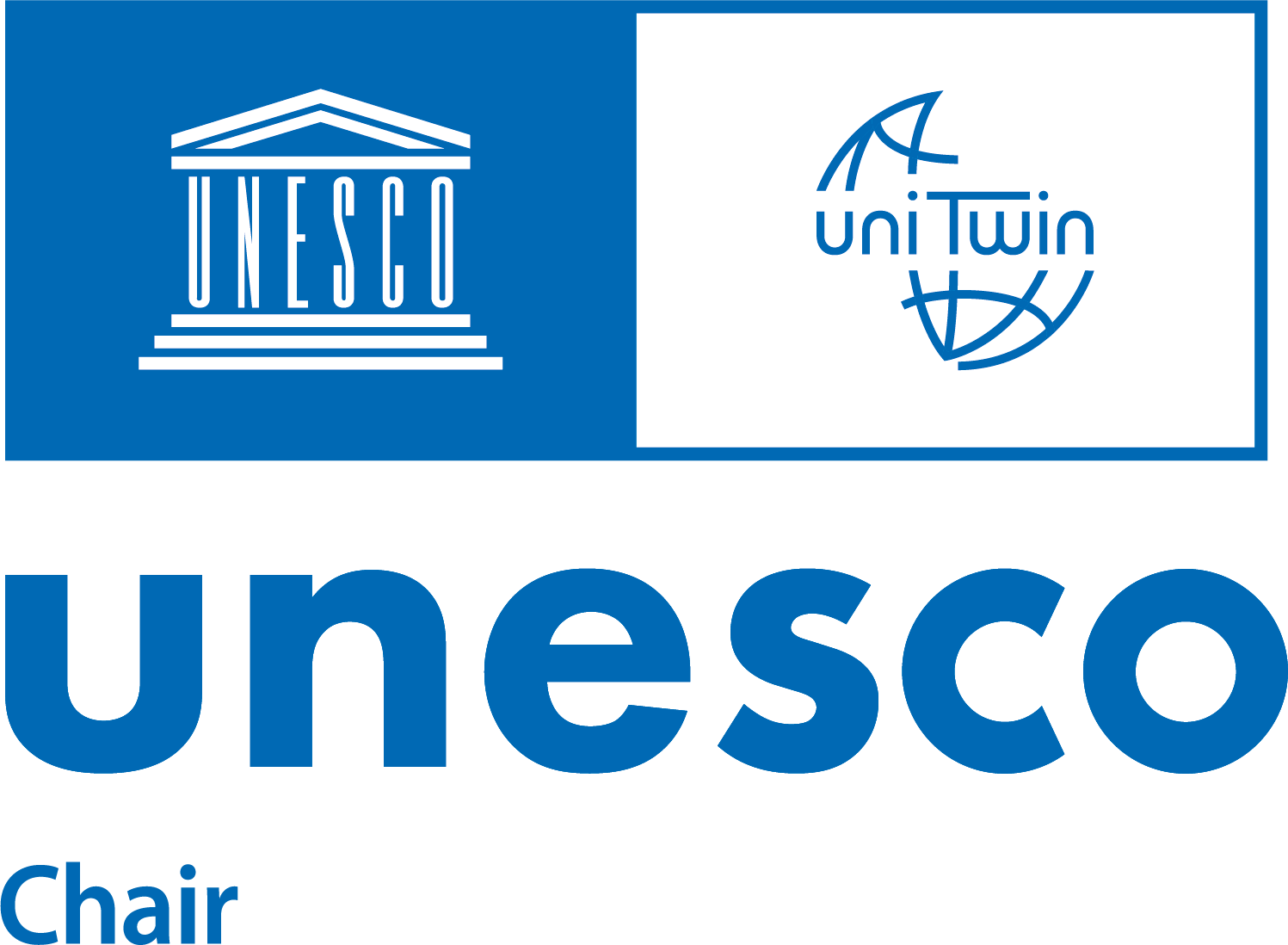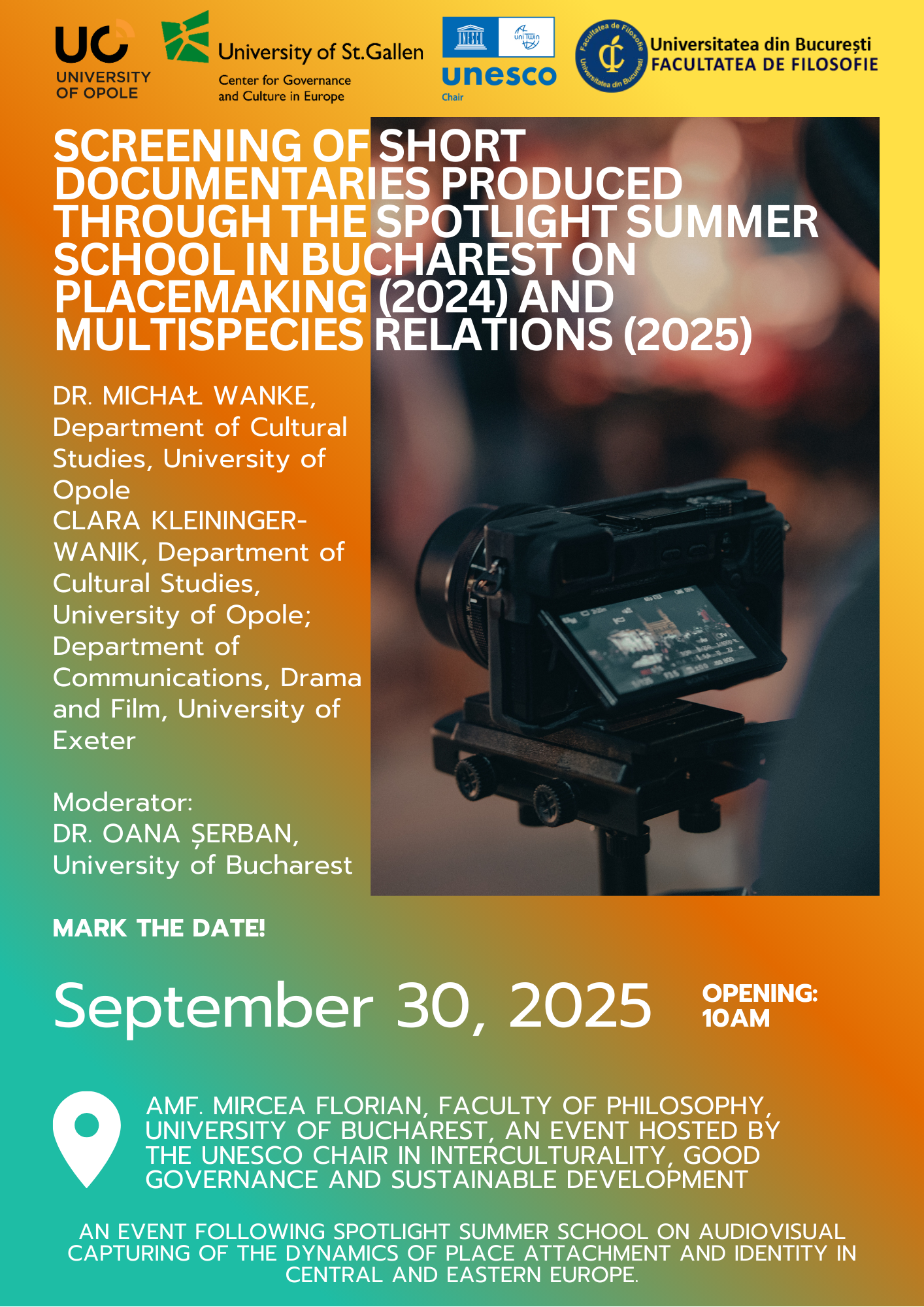This conference aims to bring together professors and researchers affiliated with UNESCO departments from Romania and from across Europe, in order to assess the human capital resources involved in the UNESCO network to support the 2030 Agenda for Sustainable Development in the field of culture and education.
The theme of this year’s edition was inspired, on the one hand, by the 25th anniversary of the UNESCO Chair for Interculturality, Good Governance and Sustainable Development, within the University of Bucharest, and, on the other hand, by the 160th anniversary of the University of Bucharest and implicitly, of the Faculty of Philosophy, the co-founder of U.B.
The two anniversaries mark the enduring educational traditions and solid organizational cultures that have over time strengthened the prestige of our academic community. In this context, it is our responsibility to evaluate the reception, at the level of the public sphere and contemporary mentalities, of the role that the Humanities field — and especially the discipline of Philosophy — holds in shaping rational, free and responsible citizens. The on-going debates on the relationship between culture and education are becoming increasingly thorny, focusing on the reform processes and also on the public policy improvements in these fields. In such situations, we notice how rarely the role of Philosophy is invoked — the same Philosophy which UNESCO recognizes as a “school of human freedom” (Philosophy as a School of Freedom – 2007) and to whom it dedicates, ever since 2008, a commemorative day every third Thursday in the month of November.
Thus, we intend to investigate to what extent intercultural perspectives regarding fundamental values such as autonomy, freedom, and independence can be supported through a philosophical education in a global paideic space, by training citizens capable of understanding and respecting pluralism, diversity and equality between people. The subject of how philosophy upholds the education of cultural imagination, nurturing empathy and solidarity between individuals of different origins, together with the topic of various beliefs and histories will be approached through the lens of UNESCO’s stated objectives since 1998 — following a world conference dedicated to the differences between institutionalized philosophical education and philosophizing in the public space — up until today, when philosophy is employed as a form of life education through formal/non-formal/informal means.
This conference is also a cultural follow-up to the Declaration for Philosophy in Paris, launched in commemoration of the 1995 UNESCO conference: we therefore seek to critically analyse what efforts have been made, at the level of European society, for the expansion of philosophical education, for the promotion of philosophical knowledge in different cultural communities, institutions and social circles, and for the imposition of Philosophy on the public agenda, as a discipline that can support the development of the relationship between culture and education.
Since this is a conference organized by the UNESCO Chair of the Faculty of Philosophy of the University of Bucharest, the organizers, together with the partners, believe that, given their professional expertise, they can respond to UNESCO’s call to evaluate the connections between “creativity, innovation, critical thinking, resilience and empathy”[1] in establishing the society of the future in a post-pandemic society, focused on sustainable growth, on the digitalization of cultural capital and the stimulation of intercultural education, while advocating for “philosophy as a school of freedom.”
The significant importance of examining the synergy between culture and education also stems from the current geopolitical and social context, in which migration, climate change and the collapse of representative and participatory democracies signal the need to respond to these clashes through the help of European communities of citizens who are ready to manage such challenges. Moreover, last year the Final Declaration of the UNESCO World Conference for Cultural Policies and Sustainable Development, MONDIACULT[2] 2022 was signed with the purpose of affirming culture as a global public good. The conclusions that arose after the previous edition of our conference emphasized the need for increased philosophical reflection on these three fundamental notions — culture, public good and education — an aspect we wish to support by creating a new framework for reflection and for critical thinking.
Therefore, the conference proposed by the UNESCO chair of the Faculty of Philosophy of the University of Bucharest aims to evaluate the ways in which cross-sectoral, educational and cultural forms of cooperation between the UNESCO departments can respond to the MONDIACULT objectives and to the SDG objectives of the Sustainable Development Agenda for 2030.
______________________________________________________________________
[1] https://www.unesco.org/en/culture-education
[2] https://www.unesco.org/en/articles/mondiacult-2022-states-adopt-historic-declaration-culture?hub=701








